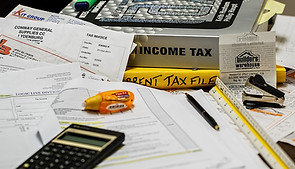This time next year, digital VAT Returns will become mandatory


The regulations are now in force for VAT returns as part of the Making Tax Digital initiative. Is your business ready?
From 01 April 2019, businesses that have a turnover above the VAT reporting threshold of £85,000 per year will be required to make digital tax returns. This is the first step towards full digitalisation of the UK’s tax system. While there are a few exemptions, these will be few and far between, and the new rules will apply to the vast majority of VAT registered companies.
The new rules will affect thousands of Essex businesses, and they need to be preparing right now. So what is involved and how can you make sure your business is ready to file its tax returns correctly?
Digital records
Companies are required to keep digital records throughout the tax year relating to the recording of their sales and purchases. This must use MTD compatible software. That in itself is a phrase that has caused a degree of head scratching, particularly among some of the long-established Essex businesses that still operate along predominantly non-digital lines.
Essentially, you will need software that extracts data from the accounting records and is able to submit that information to the tax office via the Government Gateway portal. Many businesses currently use simple Excel spreadsheets to keep track of their financial data and make VAT calculations. This will still be possible, but those spreadsheets will need to be digitally linked to other software that can actually file the returns.
What are the challenges?
There are two points that Essex businesses need to bear in mind. The first relates to the record keeping itself. Anyone sitting reading this article online might find it hard to believe, but there are is still a vast number of businesses that keep manual records. In fact, a study commissioned less than two years ago found that a staggering 75 percent of UK businesses do not use digital accounting software.
So on the one hand, businesses need to start keeping records electronically. Note that there is no requirement to make the records contemporaneously, so there is the possibility to still maintain manual records and then transfer them all to electronic format, or ask an accountant to do so.
The other aspect is in the reporting itself. HMRC is still being a little vague about what MTD compatible really means, but the idea is to avoid the risk of transposition error by having software that will automatically extract the data from the records and submit it via the Government Gateway, as opposed to having individuals re-enter it.
What about the exemptions?
As mentioned above, there are exemptions but there are only likely to be a handful of companies that fall into the tightly defined exemption categories, which are as follows:
-
The turnover for the year ending falls below the VAT registration threshold
-
The business is subject to insolvency procedures
-
The business owners are practising members of a religious body, whose beliefs preclude the use of computers
-
The business owner has a disability that makes it impractical to use digital tools
-
The business is in a location that makes it impractical to use digital tools
For most businesses, now is the time to speak to their accountants and prepare for the challenges ahead.






